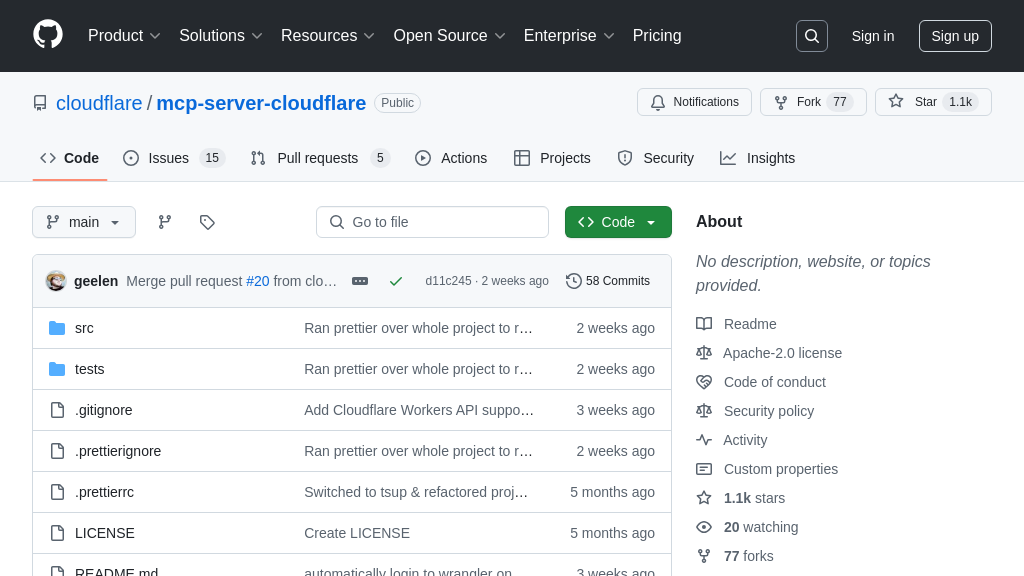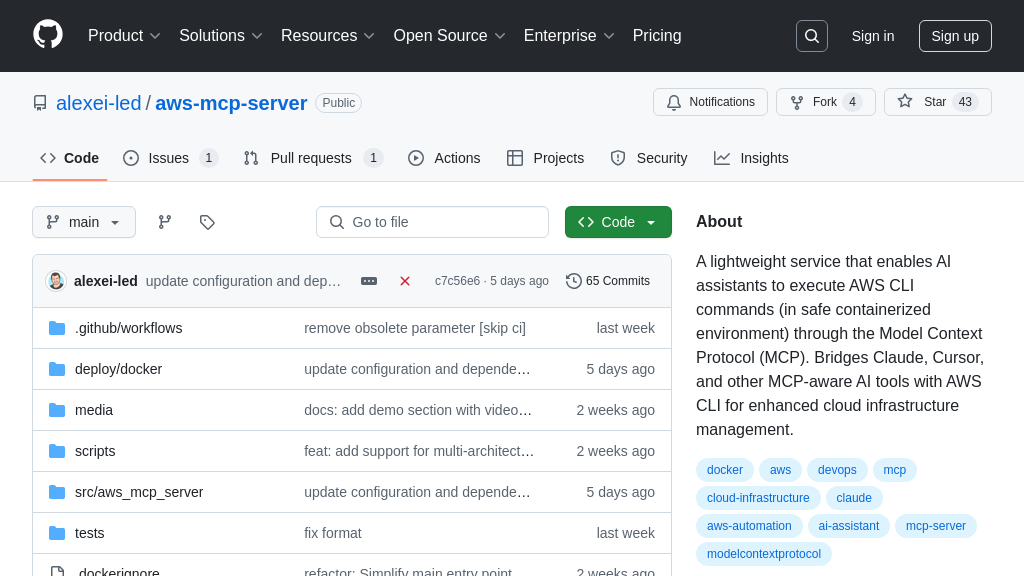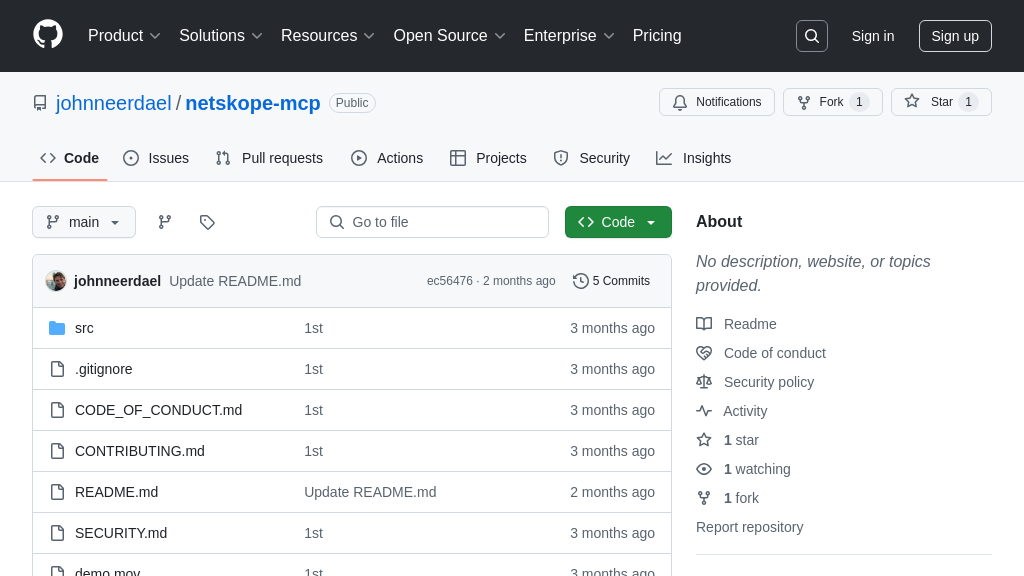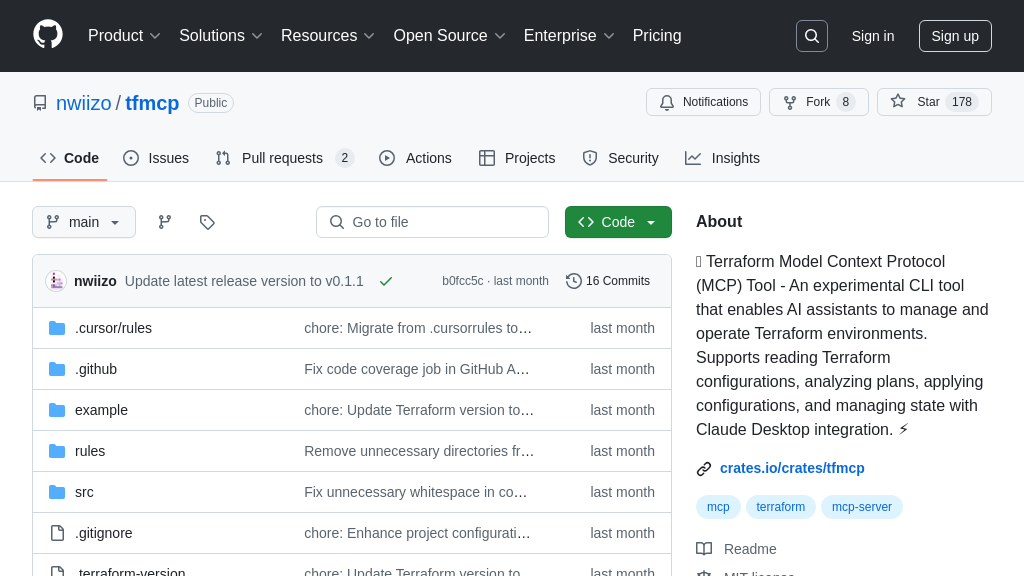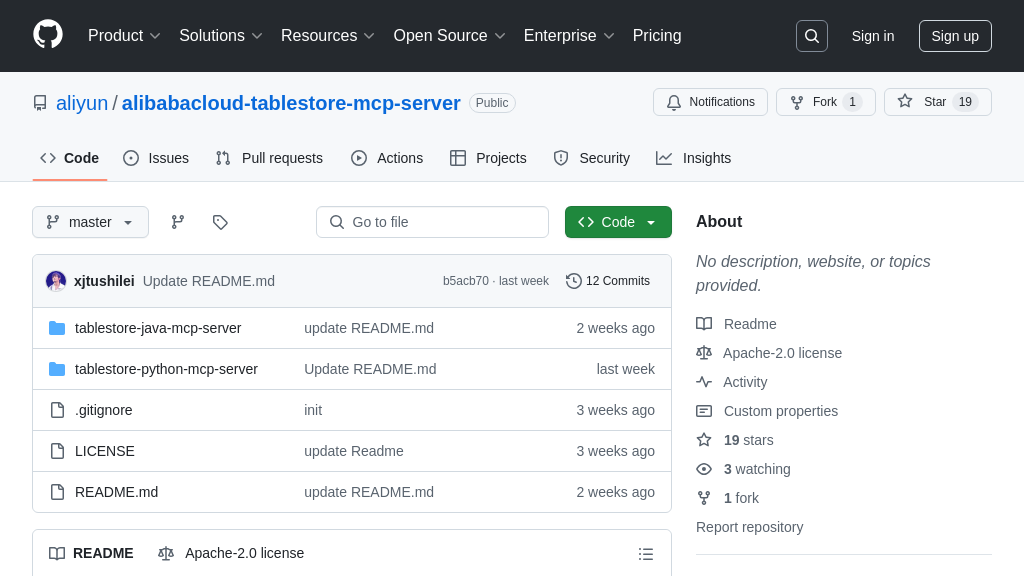heurist-mesh-mcp-server
Heurist Mesh MCP Server: Connect AI to web3 with blockchain tools via the MCP protocol.
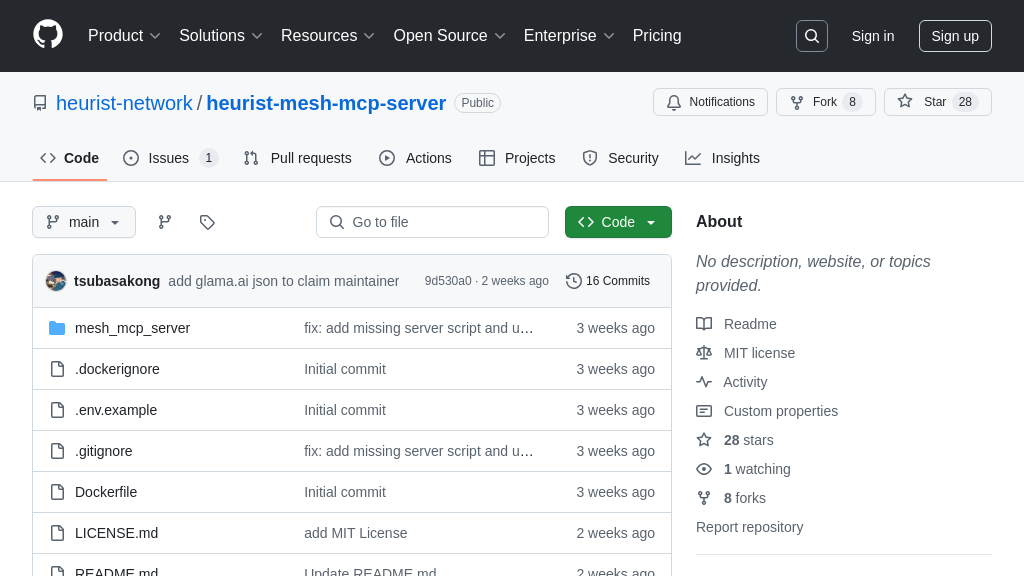
heurist-mesh-mcp-server Solution Overview
The Heurist Mesh MCP Server is a powerful tool designed to connect AI models, particularly Claude, with the world of blockchain and web3. As an MCP server, it acts as a bridge to the Heurist Mesh API, granting access to a diverse range of specialized AI agents and tools focused on blockchain data analysis, smart contract security, and more.
This server empowers AI models to interact with cryptocurrency data, perform token security reviews, and analyze wallet activities, all through a single API key. It supports both SSE and stdio transports, ensuring compatibility with various MCP-enabled interfaces like Cursor and Claude Desktop. By integrating the Heurist Mesh MCP Server, developers can enrich their AI models with real-time, actionable insights from the blockchain, unlocking new possibilities for web3 applications. The server can be easily integrated using UV or Docker, providing flexibility in deployment.
heurist-mesh-mcp-server Key Capabilities
Web3 Data Aggregation
The heurist-mesh-mcp-server aggregates data from various Web3 sources through the Heurist Mesh API, providing AI models with a comprehensive view of the blockchain landscape. This aggregation simplifies the process for AI models to access diverse datasets, including cryptocurrency market data, token security reviews, and wallet analysis, without needing to interact with multiple APIs directly. The server acts as a unified endpoint, streamlining data retrieval and reducing the complexity of integrating Web3 data into AI workflows. For example, an AI model can use this aggregated data to analyze market trends, assess the risk associated with specific tokens, or understand user behavior based on wallet activity. This is achieved by calling different Heurist Mesh Agents, each specialized in a particular domain, and consolidating the results for the AI model.
Unified API Access
This server provides a single API key access to multiple Web3 services, such as CoinGecko and GoPlus, simplifying the authentication and authorization process for AI models. Instead of managing individual API keys for each service, developers can use a single Heurist API key to access a wide range of tools and data. This unified access streamlines the integration process, reduces the overhead of managing multiple credentials, and enhances security by centralizing API key management. For instance, an AI model can seamlessly switch between fetching crypto market data from CoinGecko and performing token security reviews using GoPlus, all authenticated through the same API key. This is particularly useful in scenarios where AI models need to access diverse data sources to perform comprehensive analysis or make informed decisions.
Transport Flexibility
The heurist-mesh-mcp-server supports both Server-Sent Events (SSE) and standard input/output (stdio) transports, offering flexibility in how AI models communicate with the server. SSE provides a real-time, unidirectional data stream, ideal for applications that require continuous updates, such as monitoring market trends or tracking blockchain events. Stdio, on the other hand, allows for request-response interactions, suitable for scenarios where AI models need to query specific data points or trigger actions. This dual transport support ensures compatibility with a wide range of AI model interfaces and development environments. For example, Cursor can directly access SSE servers, while Claude Desktop users can leverage mcp-proxy to connect to the SSE server or use the stdio transport directly.
Modular Tool Integration
The server's architecture allows for easy integration of new tools and agents from the Heurist Mesh ecosystem. This modularity enables the continuous expansion of the server's capabilities, ensuring that AI models have access to the latest Web3 data and functionalities. New agents, specializing in areas such as DeFi protocols, NFT analysis, or on-chain governance, can be added to the server without requiring significant code changes or system downtime. This adaptability is crucial in the rapidly evolving Web3 landscape, where new technologies and data sources emerge constantly. The server acts as a central hub for Web3 tools, providing AI models with a dynamic and up-to-date set of resources.
Simplified Deployment
The heurist-mesh-mcp-server offers multiple deployment options, including UV and Docker, simplifying the setup and configuration process for developers. UV provides a lightweight and efficient way to install and manage the server's dependencies, while Docker allows for containerized deployment, ensuring consistency across different environments. These deployment options cater to different developer preferences and infrastructure requirements, making it easier to integrate the server into existing AI workflows. For example, developers can quickly deploy the server using Docker Compose, specifying the necessary environment variables and network configurations, or they can opt for a more manual setup using UV, tailoring the installation to their specific needs.

